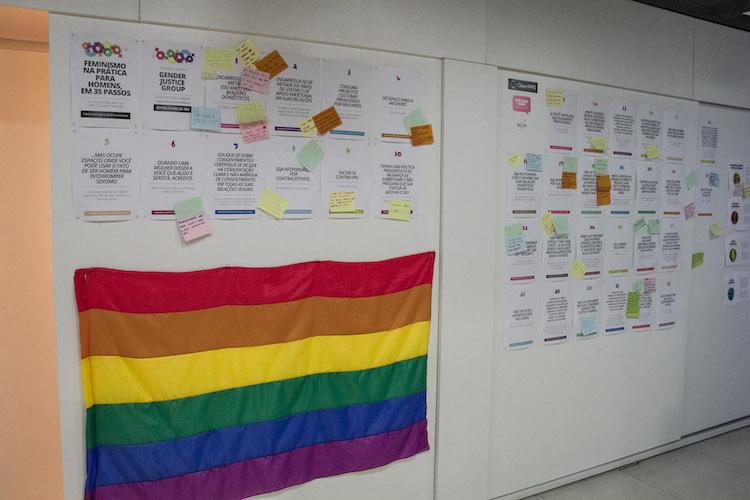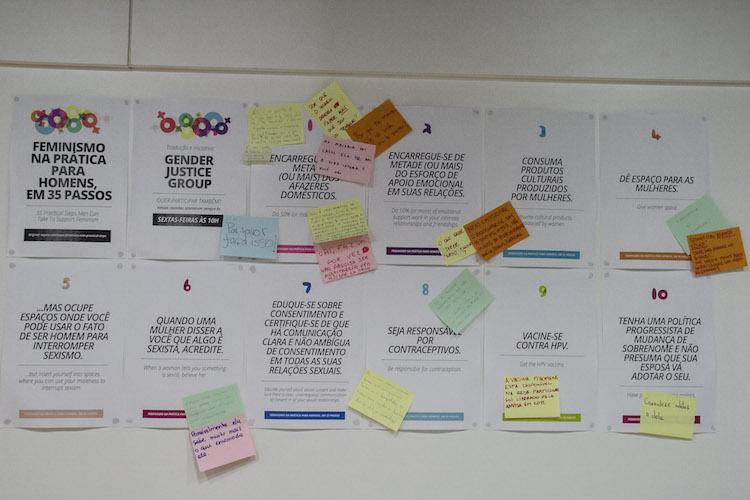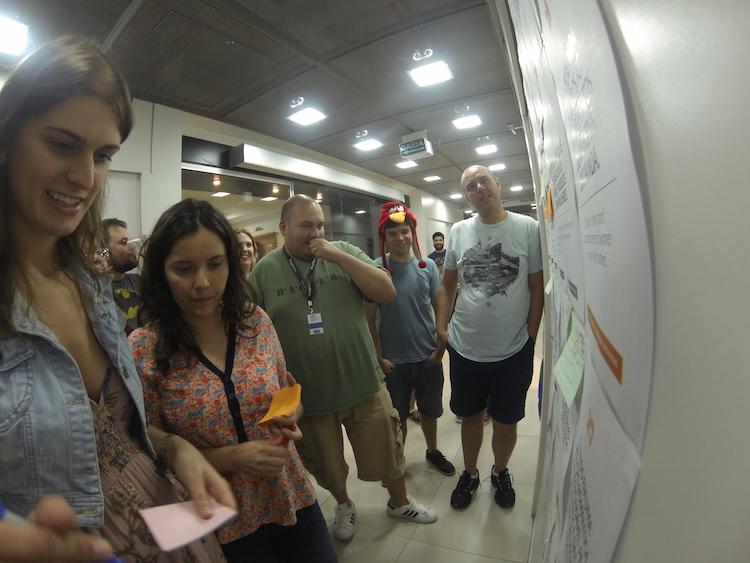
Practical Steps Men can Take to Support Feminism
At the heart of Thoughtworks, there is an ambitious mission: to be a proactive agent of progressive change in the world. Aware of our own privilege, we strive to see the world from the perspective of the oppressed, the powerless, and the invisible.
This kind of thinking forms one of the three pillars of our organization. It is a big reason why creative, courageous, and compassionate people join us, and why forward-thinking change agents from organizations around the world choose to work with us.
As a global technology company, we are uniquely positioned to influence the impact of technology in the world. Thoughtworks is active in many movements, one of them being Inclusivity in the IT Industry. That is why, as a Thoughtworker, I often discuss, how we need to create more awareness about the subtle sexism that permeates not only our industry, but also our daily lives. That is the reason I recently sent an email to my colleagues in Brazil that read:
You are sexist… but you can change!
Yes, even without intending or noticing, even trying not to be, you are probably a bit sexist sometimes. Most of us - men and women - do many things in our daily lives that directly or indirectly contribute to a culture of gender inequality.
The good news is that the fault is not (only) yours. One of the consequences of living in a patriarchal society is that, we are not socialized to think about how our habits and attitudes can harm women.
This was my way to introduce an initiative by our Gender Justice group to spread the word about 35 Practical Steps Men Can Take To Support Feminism.
This list, compiled by xoJane's author Pamela Clark, and first published at PamelaClark.tumblr.com, is designed to push men to think more consciously and personally about the direct and indirect effects they have on women, and to think more about how they can contribute to feminism through their everyday practices.
The campaign was very simple. We translated the list from English to Portuguese and designed posters with each of the suggested steps. We displayed them one by one, daily, on a prominent wall, in our Porto Alegre and Belo Horizonte offices. This way, we gave an opportunity to employees and all people visiting our offices, to learn more about feminism and how men can support women.
Here is what happened:

Organizing a Visible and Collaborative Wall
After we finished posting the list on the walls, people started adding post-its on the posters with comments and questions about them. Everyday, we would find people gathered in front of the walls discussing the list. We encouraged everyone to add more post-its and then organised an open debate to try and discuss the topics.

Getting People to Discuss
Lots of questions were raised and answered. For example, when people got confused about what "space" meant on the fourth item of the list, notes were added explaining that women could feel intimidated by the mere presence of an unknown man in a public area, and how this can be offset by offering some physical distance. Lots of comments were also posted about the first item, questioning the best way to fairly divide housework. Answers quickly appeared, pointing out that this kind of work is usually considered a woman's job, even if she works full-time. We got to analyze empirical ways to make feminism and the fight for gender equality a bigger part of our daily lives.
If you look closely at the pictures, you can see a post-it mentioning where you could get the HPV vaccine for free. A second one reminded that we should make an effort to look for women as mentors in our career development process.

Rich discussions and great exchanges between colleagues extended outside of Thoughtworks, over happy-hours and even during gatherings with family and friends.
Letícia, a designer working out of Porto Alegre office, pointed out: "These posters have facilitated a lot of important discussions. We’ve used signs before for other initiatives, but I consider this the most impactful till now. People read the notes with care, every time a new one came up. And it wasn't just Thoughtworkers, but also guests and contractors who came by. It was great to see how the post-its started off slowly, but soon took over the wall."
"This initiative has made reflect more on when, why and how I need to act," says José Alberto, a developer from Porto Alegre. "A lot of points that were brought up, exists in our daily lives, in (sometimes not so) small measure, and is ingrained in our patriarchal culture. So it's easy to miss them. Each new step added to the wall felt like an awakening call."
Lisiane, a Business Analyst from Belo Horizonte, felt challenged by the list saying, "I was surprised that many of the steps were meant for me too! It made me think of the countless situations where culture has suggested that women were subservient to men, and it forced me to think about how I can make a difference. I feel more secure now about what feminism means, and understand those little things that we can do, to promote change."
Keeping the Conversation Alive
We will now continue initiatives like this to challenge ourselves and find more ways to bring about positive change. We will also keep asking - can we do more? Should we expect more of ourselves and our industry? We know the answer to these questions is "yes". It is possible to make this world a better place for the oppressed, the powerless and the invisible, one step at a time.
Disclaimer: The statements and opinions expressed in this article are those of the author(s) and do not necessarily reflect the positions of Thoughtworks.














